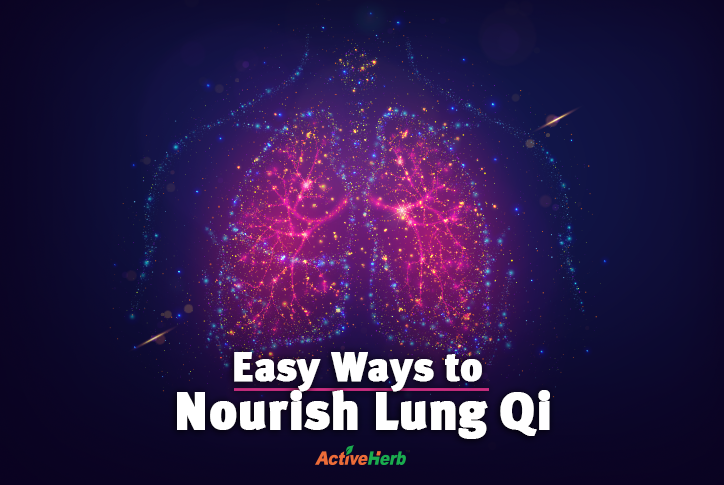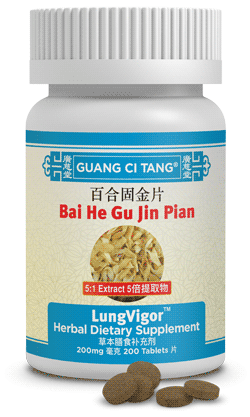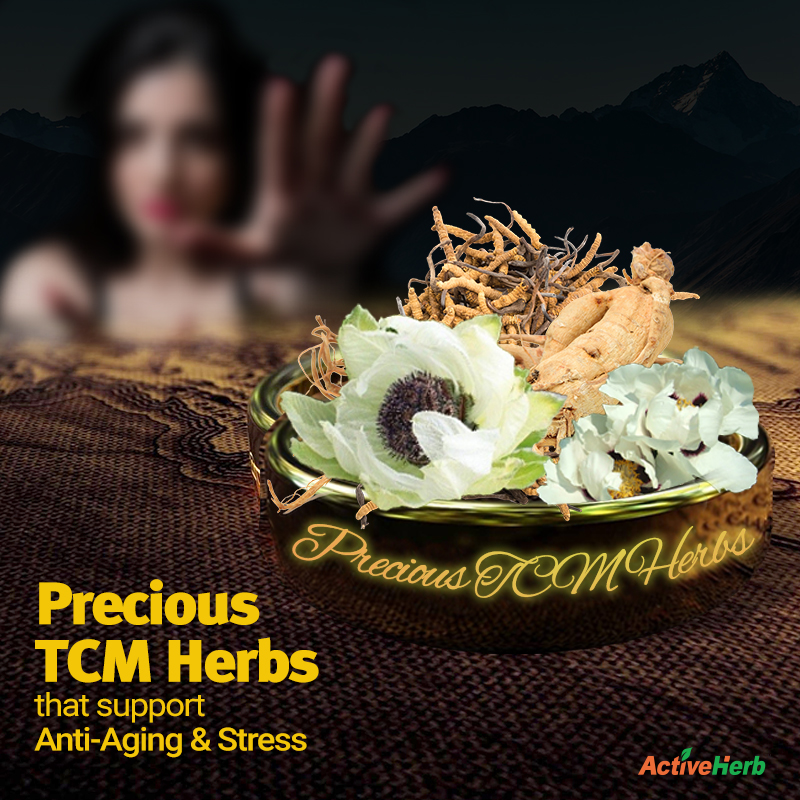Easy Ways To Nourish Lung Qi

With everything else you have going on in your life, why do you need to nourish Lung Qi? Well, If there’s one TCM organ system you don’t want to have a Qi deficiency this time of year, it’s the Lungs. The Lungs, according to TCM theory, dominate and control Qi. The Lungs also play the role of a bodyguard against harmful actors: airborne pathogens.
When Lung Qi is weak, your defensive Qi, or Wei Qei will be weak. Wei Qi is more or less what would be called the immune system in Western medicine. Moreover, having Lung Qi deficiency is associated with weak digestion, poor skin and emotional fragility.
Don’t succumb to Lung Qi deficiency any time of year, but especially in winter. The good news is there are some easy ways to nourish Lung Qi, which we’ll explore in a little bit. But first…
How Do The Lungs In TCM Affect Health?
According to TCM, the Lungs take the air we breathe, which contains Qi energy (in the form of oxygen) and directs that energy downward, sending that Qi to where it needs to go, to other organs and tissues and sinews, for example.
The Lungs are the gatekeeper between the outside environment and our internal environment. The actual Lung meridian starts in the Spleen—the main digestive system of traditional Chinese medicine—and runs down to the Large Intestine. Because Lungs drive Qi down to the Large Intestine, the organ system directly impacts the quality of your bowel movements.
If you have weak Lung organ function, the descending quality of the Qi will be weak. And that means you won’t have strong elimination. Another way that the Lung system impacts elimination is by influencing the Kidney and Urinary Bladder channels.
The Lungs in TCM not only impact breathing ability, digestion/elimination and immunity, it also determines how your skin looks. These roles are all interconnected. If Lung Qi is deficient, sluggish digestion and elimination will cause an accumulation of dampness in the skin pores, leading to occasional pimples.
But for most people, a pimple or two isn’t the main concern of having weak Lung Qi. How many people are impacted by Lung Qi deficiency is feeling run down in the winter.
So without further ado, let’s review some ways to nourish Lung Qi…
Support Lung Qi: Deep Breathing
It may not come as a surprise to hear that practicing slow, relaxed deep breathing helps nourish Lung Qi. But the problem is that relatively few people make time to do it. So if you’re currently not engaging in physical activity that expands the lungs (the western physical organ that is a part of the TCM Lung organ system), then start doing it today.
There are several options to choose from. You can practice what’s become a popular style of deep breathing called the Wim Hof method. Wim Hof is from the Netherlands and has become the Godfather of deep breathing and ice cold water plunges. After his wife with whom he had four children committed suicide, Hof engaged in deep breathing to cope with his grief. Hof, through his videos and workshops has amassed a following in the millions.
You can also search online for introductory videos to the ancient Chinese moving meditation practices of Tai Chi and Qi Gong.
Other modalities from the orient that incorporate deep breathing practices include yoga and pranayama breathing. Pranayama breathing is a discipline within yoga that involves breathing practices rather than the athletic movement of yoga poses.
If your joints can handle it, you can dust off that jump rope in the basement and get reacquainted with it. Jump roping for even just 30 seconds can invigorate the lungs. Of course, if your lungs have a severe Qi deficiency, jump roping is out of the question. If your lungs are weak, it’s better to practice breathing while seated or lying down.
Nourish Lung Qi: Eat This, Not That
Perhaps the worst food you can eat for the Lungs this time of year is dairy. If you’re at a holiday party and have a tiny bit of cheese, it’s probably not going to harm your Lungs, but why take the chance. Dairy, along with refined flour, sugar, fried foods and wheat, are all dampness-inducing foods. Excess dampness in TCM produces Phlegm, which is manifested by mucus.
According to TCM, each organ system has an associated color. White is the color of the Lungs, so eat these white foods that nourish Lung Qi such as garlic, onions and white mushrooms, cauliflower and daikon radishes. Spicy foods may also help nourish Lung Qi.
Supporting the Lungs By Singing
Can the simple act of talking or singing help lung vitality? The answer is that it depends. If you already use your voice a lot for work, this may be one reason why you have Lung Qi deficiency in the first place.
But if you’re quiet and mild-mannered by nature, belting out some tunes in the shower can help strengthen lung function. The more you free up your diaphragm, either by deep breathing or singing, the more your lungs get exercised.
Taking Care Of Your Lungs
Do we really need to mention smoking here? That’s an obvious one but one worth mentioning. And if you’re vaping (e-cigarettes), don’t be fooled into thinking you’re doing your lungs a solid favor.
OK, moving on to some final tips for nourishing Lung Qi…
It’s a good idea to irrigate your sinuses, which are the gateway to the physical lungs. Using a Neti Pot or herbal oils used in the ayurvedic (ancient Indian folk medicine) tradition can help clear unwanted airborne pathogens from the sinus passages.
Two more tips: remember your mother’s advice to bundle up against the elements. Don’t give your skin any reason to open up its pores and let the 6 evils of TCM invade and weaken your Wei Qi!
And finally if you want vigorous lungs, try the herbal TCM formula, Bai He Gu Jin Pian, also known as LungVigor. The 10 herbs in the formula include time-tested ingredients such as Rehmannia root, Angelica root, Licorice root and fritillary bulb. Lung Vigor replenishes the Yin (cooling) energy of the Lungs by moistening the lungs and supports a healthy respiratory system.







